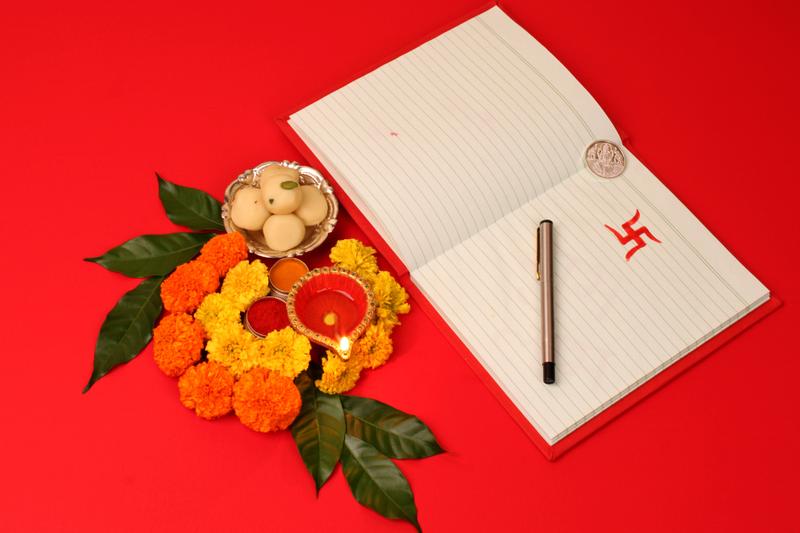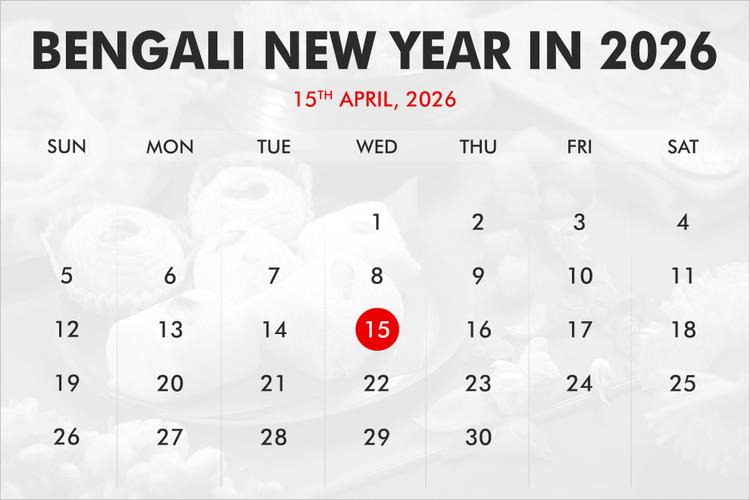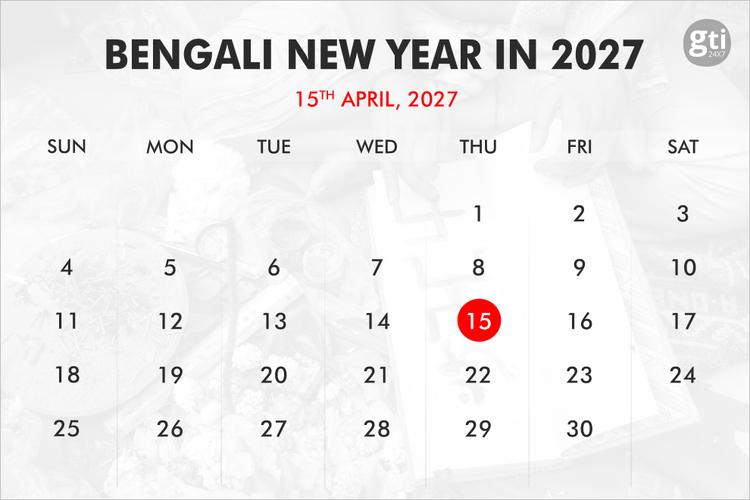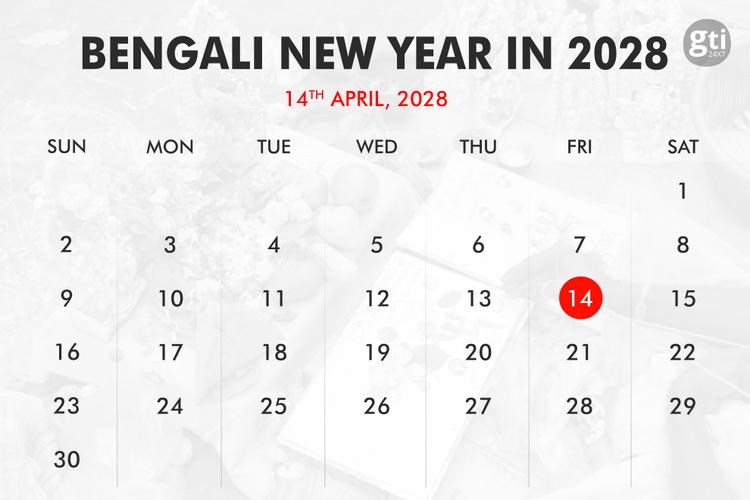In Bengali, "Poila" stands for 'first' and "Boishakh" is the first month of the Bengali calendar. It follows the Solar calendar that marks the movement of the sun and celebrates the first sign of the Zodiac Baisakh. Bengali New Year is referred to as "New Year", “Nobo Borshao” or " Pohela Boishakh" - "Nobo" means 'new' and "Borsho" means 'year'. The traditional greeting for Bengali New Year is "Shubho Noboborsho". Special food items are prepared on this special occasion of the Bengali New Year. Bengalis can be seen in their traditional attire. While the ladies wear sarees, the boys put on Kurta Pyajama or dhotis. The Bengali New Year or Nabo Borsho is the day to buy and prepare new account books by the Bengali businessmen, known as ‘Haalkhata’.
The Bengali New Year begins at dawn, and the day is marked with singing, processions, and fairs. Traditionally, businesses start this day with a new ledger, clearing out the old. People of Bangladesh enjoy a national holiday in Poila Boishakh. All over the country, people can enjoy fairs and festivals. Singers perform traditional songs welcoming the new year. People enjoy classical jatra plays. The day is marked by visiting relatives, friends, and neighbors. People prepare special dishes for their guests. The festivities from the deep heartland of Bengal have now evolved to become vast events in the cities, especially the capital Dhaka.
For 400 years, Bengali New Year is celebrated in Bangladesh and West Bengal. Welcome, Bengali New Year with songs and dances! Celebrate 15th April 2015, Wednesday with your loved ones in a unique and traditional manner. Show respect to your elders by touching their feet on this auspicious festival. Wish your friends and family members ‘Shubho Nabo Barsho’ on Bengali New Year. Participating in numerous cultural activities can make this festival more joyful and memorable. On this day the idols of Lord Ganesha and Goddess Laxmi are worshipped for the well-being and prosperity of all the family members. It also is a significant day among Bengali businessmen when they make new accounts book known as Haal-khata. To make the celebration joyous, people organize various cultural programs and competitions for kids, and eating traditional Bengali food is the main focus.
Poila Baisakh is the first day of the Bengali calendar. The term ‘poila’ stands for first whereas Baisakh means the first month of the Bengali calendar. The Bengali calendar was originally known as Tarikh-e-Elahi. It is believed that the Bengali calendar was introduced by Mughal Emperor Akbar in 1585 A.D. Bengali calendar was introduced in the 29th year of Akbar’s reign for collecting taxes in an organized manner from various provinces.
During the Mughal period, agricultural taxes were usually collected by following a lunar calendar which is better known as Hijri Calendar, which does not coincide with the time of harvest. Therefore, farmers were forced to pay taxes at inappropriate times. In order to reduce the stress on the farmers, Mughal Emperor Akbar decided to come up with the Bengali calendar. A renowned scholar and astronomer named Fatehullah Shirazi created the Bengali New Year mainly by following Hindu solar and Hijri lunar calendars. So, Bengali New Year was originally started and celebrated during Akbar’s reign.





